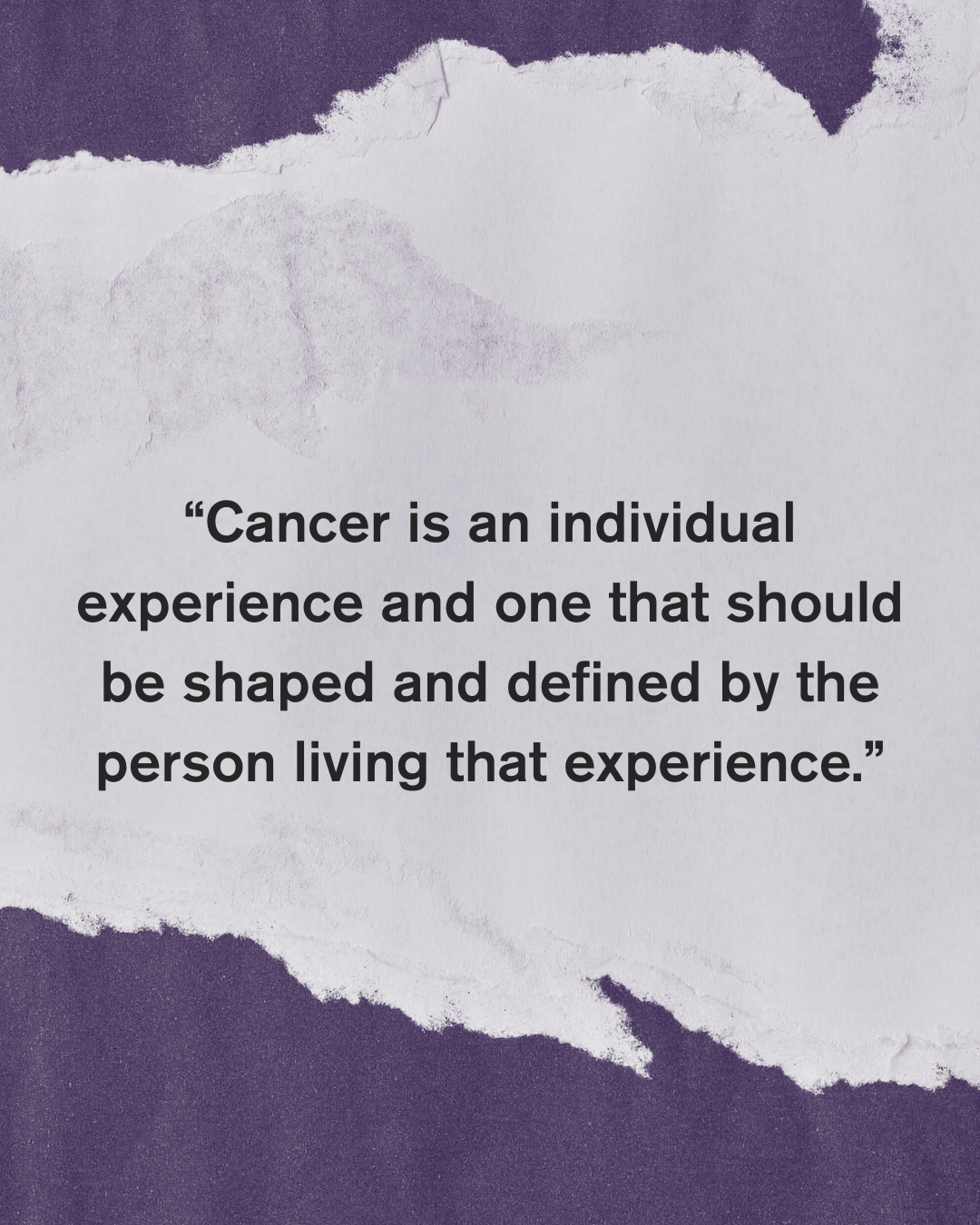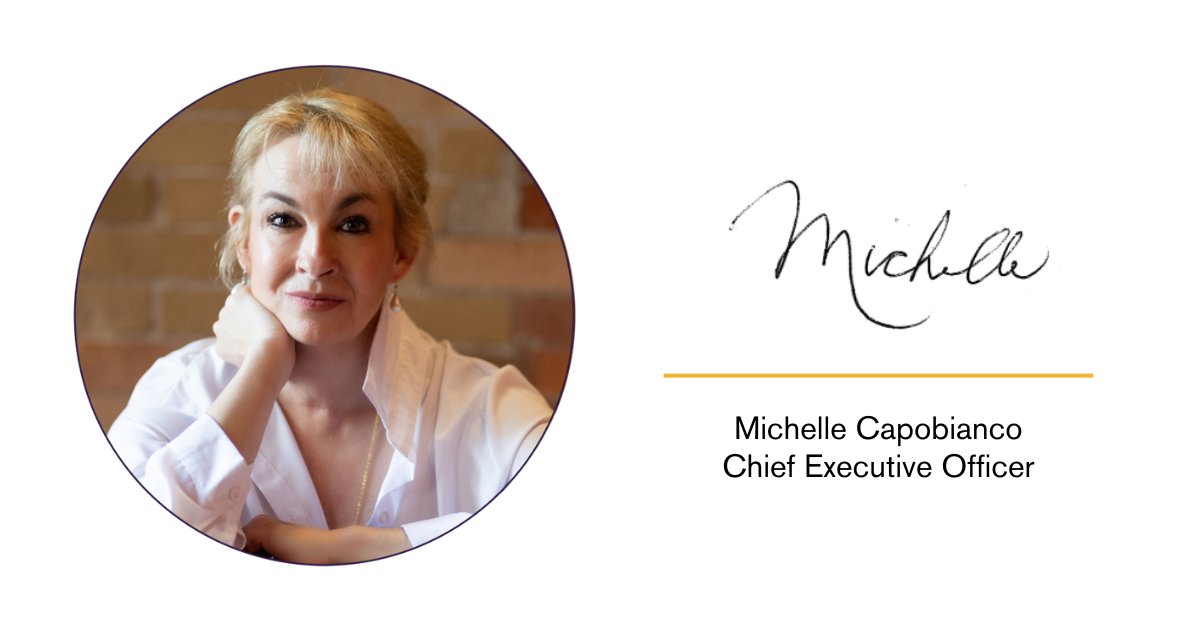
Fixing the language of cancer: why the words we use matter
by Michelle Capobianco
An article recently published in the Mayo Clinic Journal struck a chord with me. The article entitled, “Never-Words: What Not to Say to Patients With Serious Illness” outlines specific words and terms that should not be used by healthcare professionals because they can negatively impact a patient’s sense of empowerment, control and their mental health.
As a cancer survivor and the CEO of an organization dedicated to improving outcomes for a cancer with a devastatingly low survival rate, I am especially mindful of the impact that language can have on the outlook of cancer patients and their families.
Our expectations of physicians go well beyond a correct diagnosis and treatment plan. They are often the primary source of information; they are the bearers of good and bad news; and they set the tone and expectations for matters that are literally life and death.
My first cancer diagnosis wasn’t even given by a doctor. A nurse entered the room, looked at my file and said: “oh you have cancer” and then left the room. To this day I remain unclear on what the doctor actually said when he arrived in the room as I was in a state of shock.
We work with patients and families every day. We sometimes speak in numbers and statistics to understand the scope and impact of pancreatic cancer. And like healthcare professionals, we understand the need, to some degree, to separate yourself emotionally so that you can do your job effectively. But for a person facing a cancer diagnosis, this experience is unique, personal and life-altering. The way information is shared could very well shape their perspective and attitude for the duration of their treatment and well beyond.
Each person has the right to determine what language they will use to describe their cancer and their journey. When I was diagnosed with breast cancer, I literally told everyone who came near me. Once at a restaurant soon after my diagnosis, the waiter was slow bringing my wine, so I said: “I have breast cancer, we need to get this wine flowing.”
For me, speaking the words out loud was my way of claiming it and owning it. It was only through having control over how I spoke about it and what responses I encouraged that I felt I could get through it.
For as long as I can remember, the language of cancer has been battle language. People talk about the “fight” and the need to “win the battle,” and when someone dies from the disease, they have “lost.”
As an organization, we have made the decision to avoid using these metaphors. While we recognize that for many cancer organizations, the “fight” or “battle” is a rallying cry, we believe that each person impacted by the disease should feel empowered to choose their own narrative. Cancer is an individual experience and one that should be shaped and defined by the person living that experience.

In his article, “The Combative Language of Cancer: A Plea for an Armistice,” in the Journal of Clinical Oncology, Dr. Matthew J. Farrell asks whether this aggressive language impacts patients’ experience with cancer. Based on his own experience both as a physician and a friend, he shares several learnings about how we can better approach the language of cancer, including: “Be precise and direct. Sometimes metaphors help convey an idea; other times they obscure the point. Some patients will find it a relief to have frank discussions about cancer, suffering, death, and dying—using that exact language.”
For pancreatic cancer patients and their families, the language of cancer often includes the language of death. With a survival rate of only 10 percent, talking about death is both inevitable and necessary. But how we talk about death and dying is as important as how we talk about diagnosis and treatment.
There is another pivotal moment in some physician/patient relationships when the decision is made that the patient will no longer receive active treatment. Too often we hear that an oncologist bids a cheerful goodbye accompanied by a “see you tomorrow” when the reality is that they know they will not see that patient again because they are sending in a hospice team.
Last year, I had power of attorney for my elderly godmother. She was 98 years old and dying from lung cancer. I knew she would want a “Do Not Resuscitate (DNR)” order on her file and I made sure it was in place. Despite that, I was awoken one night at 3 am by the on-call physician at the hospital who asked, “if she really starts circling the drain, what do you want me to do?” First off, “circling the drain” is one of those “never words” that should NEVER be used by a physician. But second, his approach, while direct, demonstrated a lack of respect for her as a patient and for me as her loved one.
The perfect language for how we talk about cancer may never be found. But what we can do is recognize that each individual who hears the words: “you have cancer” is forever changed and they should be given the autonomy and authority to control their own experiences and the language that is used to define them.

Patient and Family Support
Pancreatic Cancer Canada is committed to ensuring patients and their families feel
supported and have access to the specialized care and support they need at every stage of their cancer.
Click the button below learn more about how we support patients and their families.

Recent Comments